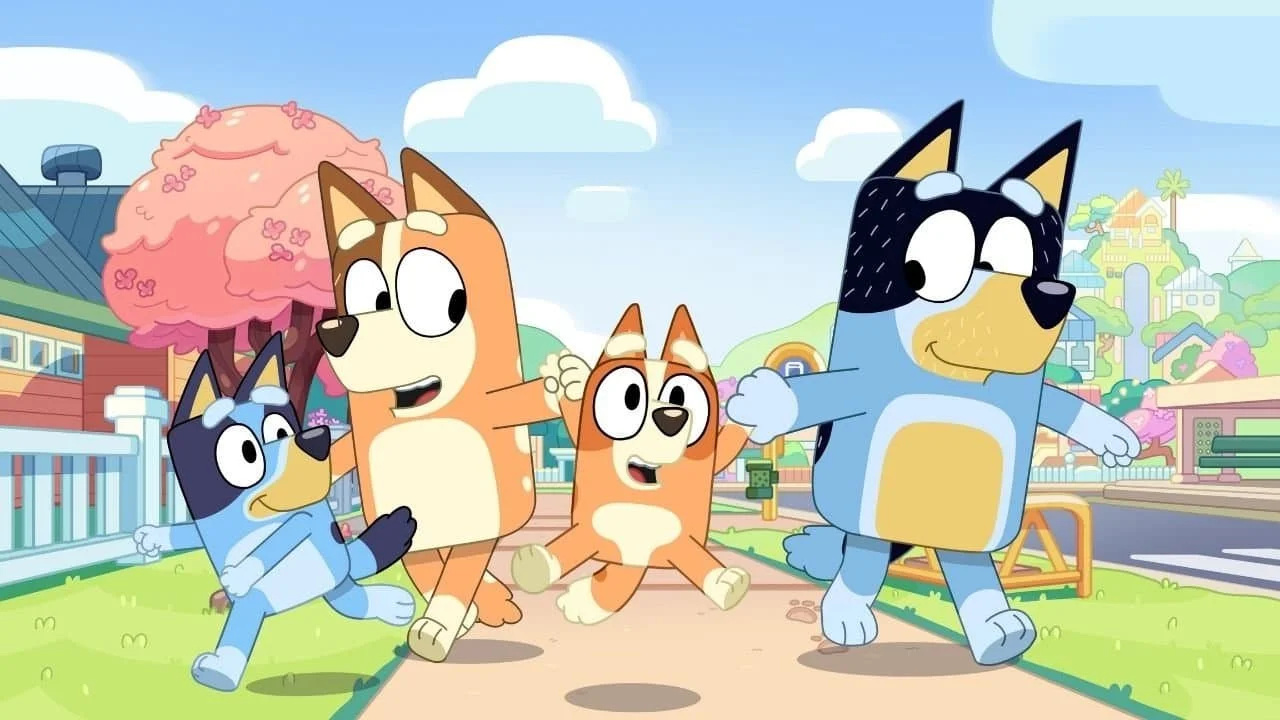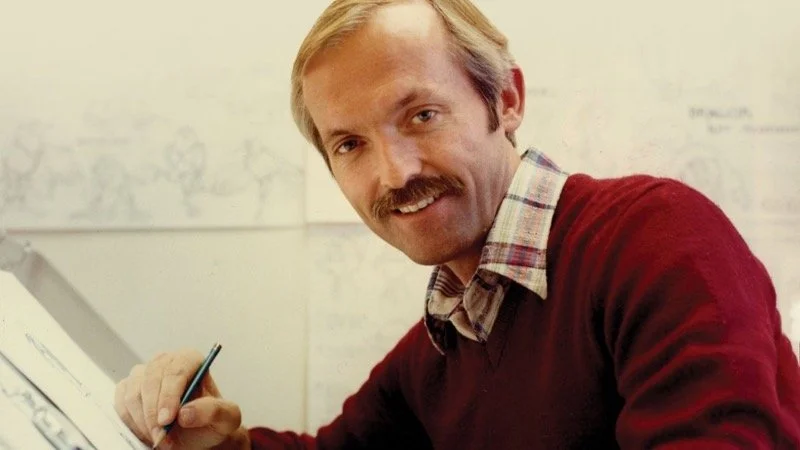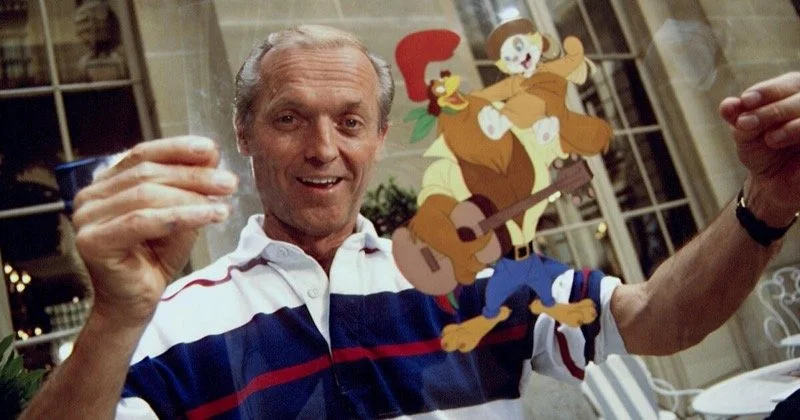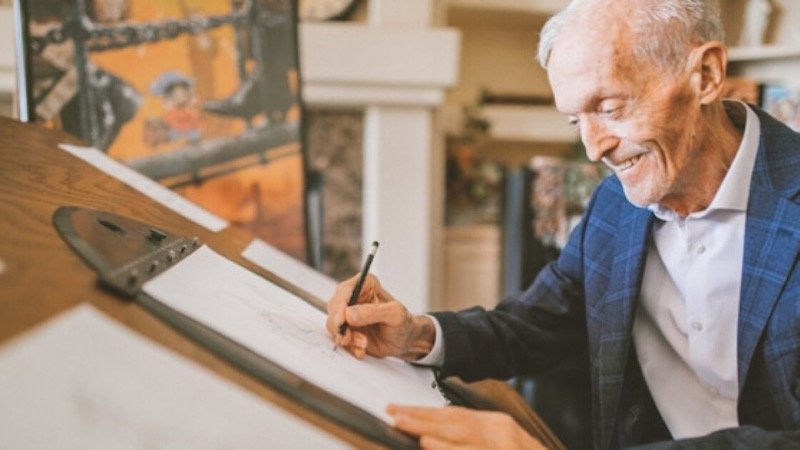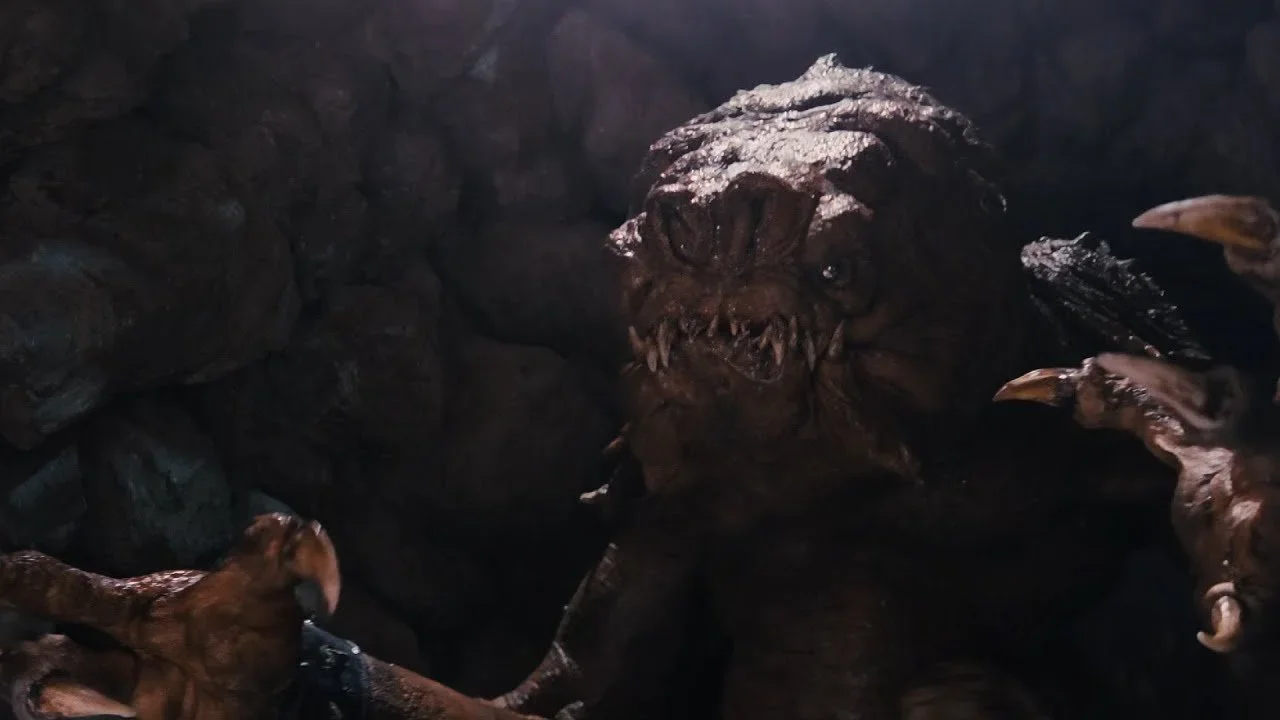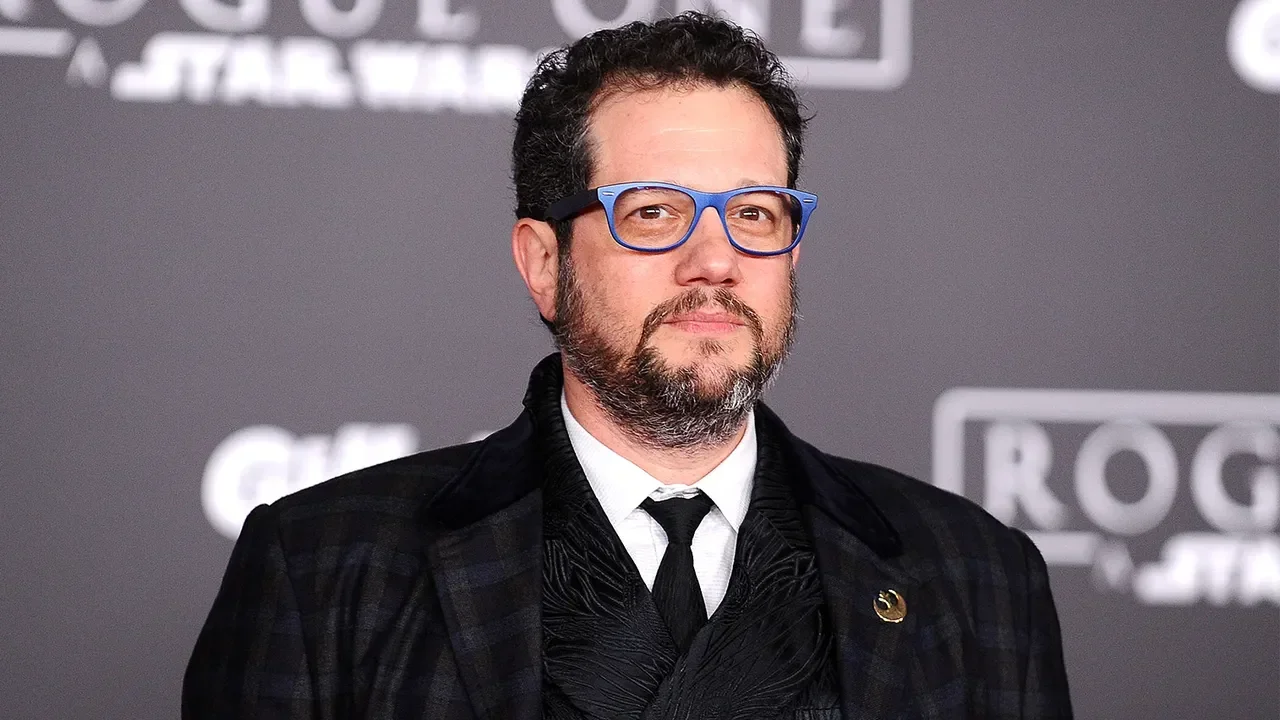The Rise And Fall Of Don Bluth
Image Source: YouTube
Don Bluth’s career is all about staying one step ahead of Disney. The filmmaker responsible for The Land Before Time and An American Tail may have come from the House of Mouse, but he was constantly at war with them.
The Disney Era
In 1955, Don Bluth was hired as an assistant on Sleeping Beauty. After several college courses, he worked his way up to animator and was responsible for sequences in Robin Hood, The Rescuers, Winnie The Pooh and Tigger Too, and Pete’s Dragon. Bluth learned his craft at the side of John Lounsbery, one of Disney’s ‘nine old men’, the core animators who were considered Disney’s lifeblood. It was assumed that he would rise through the ranks in the studio.
“probably the straw that broke the camels back with me was when we were doing The Rescuers they decided not to paint the whites of the eye on the main characters and just paint the skin colour underneath because it would cost too much to paint “ – Don Bluth
RELATED:
Image Source: Salt Lake Tribune
But Bluth wasn’t happy, he had issues with the deterioration of the production process and a lack of regard for the artists. It all came to a head on The Fox and the Hound. Don Bluth, Gary Goldman, and John Pomeroy quit the movie on Bluth’s birthday, and eleven animators joined them the following day. The release of The Fox and the Hound was delayed as a result. Disney would never forgive him. Mickey never forgets.
The Secret Of NIMH
The animators formed Don Bluth Productions and received support from Aurora Productions, a film company set up by former executives at Disney. The Secret of NIMH was their first picture. It used hand-drawn cell animation that Disney was attempting to phase out. The picture only made 14 million against a 7 million budget domestically, (in part due to competition with E.T. the Extra-Terrestrial) but it did extremely well on home release. It wasn’t enough for Aurora, and they decided not to work with Bluth on further projects. This was ultimately a bad decision for both parties as Aurora folded after only six pictures.
The Spielberg Era
Image Source: LA Times
Bluth encountered more problems with the next movie. He signed a deal with Columbia for a Beauty and the Beast adaption, but it had to be scrapped when it was discovered Disney was working on the same story for their movie. For a while, it looked as if Don Bluth Productions was sunk, and they filed for bankruptcy in 1985. They needed something to save the studio, someone to pull them out of the hole.
Everyone who worked on Secrets of NIMH believed in it, none more than its composer, Jerry Goldstein. He secretly screened it for a ‘friend’ in Hollywood who had been amazed by the care and craft. Ironically, it was the director who had destroyed Secrets of NIMH at the box office.
An appointment to meet with Steven Spielberg was booked soon after. It took two years for their joint project, An American Tail to get off the ground. But it was a hit with audiences, with an 84 million dollar worldwide gross from a 9 million budget. This was more than Disney earned for The Black Cauldron and The Great Mouse Detective, combined. "Somewhere Out There", the movie’s most notable song, won two Grammys and an Oscar nomination.
Bluth hit his stride with Spielberg, making The Land Before Time next. However, Disney decided to drop Oliver and Company on the same day in a bid to squash the picture. The two movies took a similar gross in the US, but Bluth’s dinosaur film crushed Disney overseas by almost 30 million dollars. This is where Spielberg and Bluth parted ways. Spielberg was a superstar at his peak, and Bluth had issues with the constant oversight.
Disney Fights Back
The last Don Bluth film of the 80s was All Dogs Go To Heaven, and once again Disney adjusted their release date. This time Bluth went up against The Little Mermaid. Disney had been investing and innovating. This film was on a scale that no one had ever seen before and used the Computer Graphics lab for big sequences rather than Bluth’s preferred traditional techniques. The Little Mermaid was the last movie that would have any cell animation. And Disney went all out on a Broadway-like score. All Dogs Go To Heaven took half of their previous box office take, but still made a profit.
“Now, I know they worked really hard on putting us away and getting us out of the picture, because Disney has a feeling that animation is their franchise and should belong to no one else” – Don Bluth
Unfortunately, Disney wasn’t done. Beauty and the Beast, Aladdin, and The Lion King followed. Bluth’s next movie Rock-A-Doodle didn’t make its budget back and Bluth was forced to file for bankruptcy again in 1992. But he managed to find backers for the movies in production, signing a deal with Warner for a new animation wing of the company. But Thumbelina, The Pebble and the Penguin, and A Troll in Central Park were just not able to compete against Disney’s new style and aggressive marketing.
Hello, World!
“Any of the studios now will tell you that the only thing that sells now is CG. We don’t believe that, we think that there is room for two kinds of art, oil painting did not get rid of watercolour. I do think that what Walt conceived has enriched many, many lives all over the world” – Don Bluth
In 1997, Bluth’s longtime friend and colleague, Gary Goldman was appointed as chairman of 20th Century Fox Animation. After rejecting suggestions for a My Fair Lady, and The King and I adaption, they hired a cast of famous voices, including Meg Ryan, and Kelsey Grammar to work on Anastasia.
20th Century Fox spent 50 million on marketing for Anastasia. Disney responded by banning television advertisements for Anastasia to be aired on its television programs. They also decided to re-release The Little Mermaid and drop Flubber in cinemas at the same time as Anastasia. Disney failed to stop audiences from filling seats, the picture made 140 million dollars worldwide and was Bluth’s biggest success. Although Disney ultimately bought the film when they took control of Fox in 2019.
“There were a lot of high moments in our Disney careers where we triumphed many times but there was always this pursuit where Disney was trying to shut us down” – Don Bluth
Titan AE
Goldsmith and Bluth were handed a script that had been floating around the 20th Century Fox lot. The movie would eventually become Titan AE. Several writers had worked on it, and it had flitted back and forth between a live-action and animated feature. No one really knew what it was going to look like. Joss Whedon did the final pass on the science fiction project, meant to appeal to the Star Wars demographic.
The pair had worked on a couple of video games, but they had never worked on a science fiction film. But they liked the concept and were given a huge budget to play with, around 75 million dollars.
However, Fox Animation was in trouble; it hadn’t put out enough feature films, and Anastasia (thanks to Disney) hadn’t grossed enough to make up the shortfall. In 1999 most of the studio’s staff were laid off, so Titan AE was finished by Blue Sky. The brakes were put on most of the film’s marketing and distribution, and it was half-heartedly released into cinemas.
The teen boys that it was aimed at never got the message, and mothers rocking up with their young children were shocked by some of the bad language and adult themes. Titan AE scrapped back half of its budget and put an end to Bluth’s movie career. Titan AE has achieved cult movie status, with stunning animations, a thoughtful script, and a soundtrack that deserves more recognition.
Disney commissioned their own version of Titan AE, Treasure Planet, which was released two years later. However, that also ran into problems. In the following years, the Mouse purchased Blue Sky, Pixar, Marvel, 20th Century Fox, Jumbo Pictures, and many more. Illumination and DreamWorks are still standing. But streaming services such as Netflix and Prime Video are the only ones who are likely to be able to offer Disney any competition in the future.
Image Source LDS Living
Despite his talent, Don Bluth was always one movie away from bankruptcy, primarily due to Disney’s savage pursuit of the animation market. It leaves fans to wonder what he could have accomplished if given a little more time and space.
READ NEXT:


